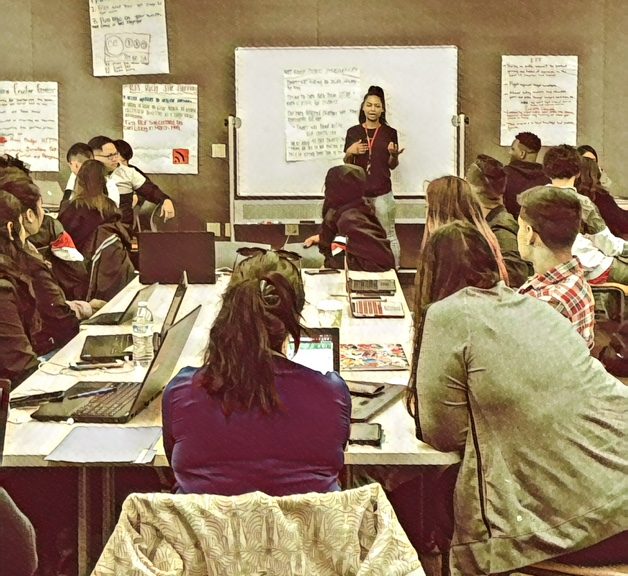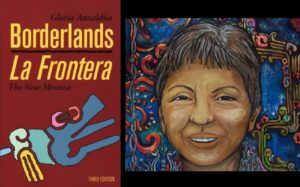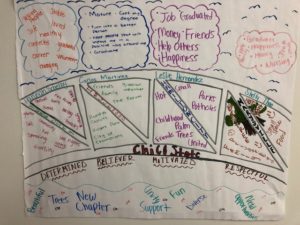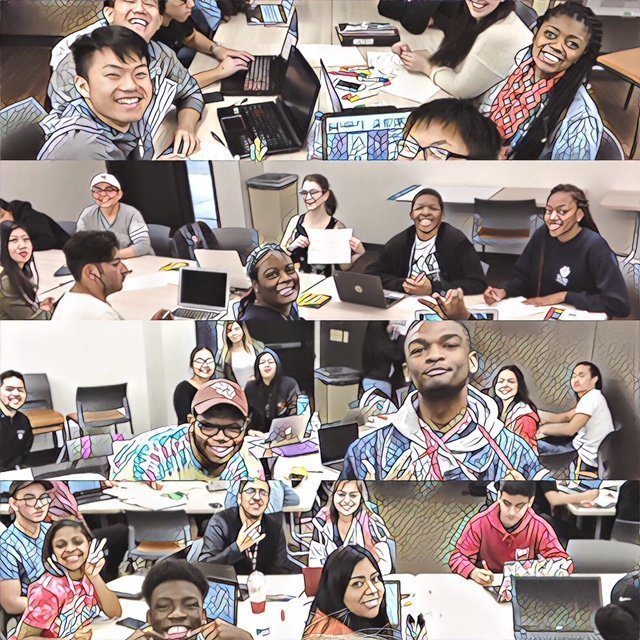
Class discussions
Prompts and discussion questions to support our work
Example short films
Feb 25
Feb 13
Feb 6:
 Talk with each other about a place in Anzaldúa’s essay that you chose. Why did you pick that particular paragraph or passage?
Talk with each other about a place in Anzaldúa’s essay that you chose. Why did you pick that particular paragraph or passage?
Together, choose one from your group to share with the whole class. Use the large post-it notes to share with us:
- what does the quote say?
- what does that mean in your words?
- why does this matter to us?
Then, let’s talk about the components of this essay: how does she use quotes, other authors, various languages, subheadings intentionally? What structures might we borrow from her essay to try out ourselves?
 Feb 4
Feb 4
Google Form for celebrating work
Jan 30
“The practices of social groups are never just literacy practices; they also involve ways of talking, interacting, thinking, valuing, and believing. Can not pull apart literacy practices from non-literacy practices.” (James Gee)
Jan 28
 Read and give feedback to a peer: Point out some ideas that are interesting to you or that you connect with. Give the writer at least 2 things they could do next. What might be a next step if they wanted to turn this into a longer draft? Where are places where you would want to read more and have the writer expand? Are there ideas they could also research?
Read and give feedback to a peer: Point out some ideas that are interesting to you or that you connect with. Give the writer at least 2 things they could do next. What might be a next step if they wanted to turn this into a longer draft? Where are places where you would want to read more and have the writer expand? Are there ideas they could also research?
Also, as you’re reading their paper, notice great sentences/ideas to share in a document together. Link in calendar to shared doc.
Jan 21

Some writing:
Think about your literacies: what do you read and write? What counts as writing? What about lists, social media, texting, emails, amazon reviews? In what ways do you use writing in your day-to-day life? How does this writing connect to writing you do for school? What purpose does writing serve in your life?
Then, spend a few minutes thinking about the writing “rules” you’ve been taught or think about when you’re writing.
Some linguistic facts from Rosina Lippi-Green:
- All spoken language changes over time
- All spoken languages are equal in linguistic terms
- Written language and spoken language are historically, structurally, and functionally fundamentally different creatures
- Variation is intrinsic to all spoken language
From Patrick Hartwell: A simple thought experiment will isolate the special status of Grammar 1 knowledge. I have asked members of a number of different groups-from sixth graders to college freshmen to high-school teachers-to give me the rule for ordering adjectives of nationality, age, and number in English. The response is always the same: “We don’t know the rule.” Yet when I ask these groups to perform an active language task, they show productive control over the rule they have denied knowing. I ask them to arrange the following words in a natural order:
French the young girls four

